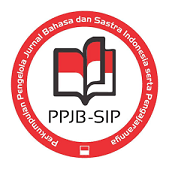Penilaian Autentik dalam Pembelajaran Menulis Teks Ulasan di Kelas VIIIA9 SMP Negeri 1 Singaraja
DOI:
https://doi.org/10.23887/jjpbs.v5i3.8692Abstract
Penelitian deskriptif kualitatif ini bertujuan untuk mendeskripsikan (1) perencanaan penilaian autentik, (2) pelaksanaan penilaian autentik, (3) kendala yang dihadapi oleh guru dalam merencanakan dan melaksanakan penilaian autentik, dan (4) respons siswa terhadap pelaksanaan penilaian autentik dalam pembelajaran menulis teks ulasan di kelas VIIIA9 SMP Negeri 1 Singaraja. Subjek dalam penelitian ini adalah guru mata pelajaran bahasa Indonesia dan siswa kelas VIIIA9 SMP Negeri 1 Singaraja. Objek penelitian ini adalah perencanaan dan pelaksanaan penilaian autentik, kendala yang dihadapi oleh guru dalam penilaian autentik, serta respons siswa terhadap penilaian yang dilakukan oleh guru. Metode yang digunakan untuk mengumpulkan data adalah metode observasi, dokumentasi, wawancara, dan kuesioner. Hasil penelitian ini menunjukkan bahwa (1) perencanaan penilaian autentik dalam pembelajaran menulis teks ulasan tergolong baik karena penilaian yang dilakukan guru memenuhi ciri-ciri penilaian autentik, (2) pelaksanaan penilaian autentik dikembangkan dari perencanaan yang telah disiapkan, (3) terdapat beberapa kendala yang dialami oleh guru dalam merencanakan dan melaksanakan penilaian autentik, yaitu kurangnya pemahaman mengenai rencana pelaksanaan pembelajaran (RPP), kesulitan dalam menyusun instrumen dan pedoman penilaian, kesulitan menyesuaikan jumlah siswa dengan banyaknya penilaian yang harus dilakukan dan ketersediaan waktu, keterbatasan fasilitas atau sarana prasarana, (4) respons siswa terhadap penilaian tergolong positif dengan skor rata-rata 41,65. Peneliti lain dapat mengkaji aspek lain, seperti dampak psikologis peserta didik terhadap jenis penilaian autentik yang digunakan oleh pendidik, maupun dari aspek kekontekstualan dan kefektifan penilaian autentik dalam pembelajaran bahasa.Kata Kunci : penilaian, autentik, pembelajaran, menulis
The purpose of qualitative descriptive research is to describe (1) planning of authentic assessment (2) the implementation of authentic assessment (3) the obstacles that experienced by educators in planning and implementing authentic assessment, and (4) response of student to the implementation of authentic assessment in learning to write the text reviews in class VIIIA9 SMP N 1 Singaraja. The object of this research is planning and implementing authentic assessment, the obstacles that experienced by educator in authentic assessment, and the response of student to the assessment that made by the teacher. The method that used to collect the data is the method of observation, documentation, interviews and questionnaires. The results of this research is defined that (1) planning of authentic assessment in learning to write the text reviews are classified as good because the assessment that implemented by the teacher is identified as authentic assessment, (2) the implementation of authentic assessment is increasing from the planning in the files, (3) there are several obstacles that experienced by the teacher in planning and implementing authentic assessment, such as the lack of understanding about lesson plan, the difficulty in develop instruments and guidelines for assessment, the difficulty of adjusting the number of students with the number of assessment that should be doing and the available time, limited facilities or infrastructure, (4) response of the student to the assessment is positive with average ratings score 41.65. Other researchers could study otheraspects, such as psychological impact of student to the kind of authentic assessment used by educators, as well as from the contextual aspect and effectiveness of authentic assessment in language learning.
keyword : Keywords: comment text, authentic assessment, writing
Published
2016-11-02
Issue
Section
Articles
License
Authors who publish with the Jurnal Pendidikan Bahasa dan Sastra Indonesia Undiksha agree to the following terms:- Authors retain copyright and grant the journal the right of first publication with the work simultaneously licensed under a Creative Commons Attribution License (CC BY-SA 4.0) that allows others to share the work with an acknowledgment of the work's authorship and initial publication in this journal
- Authors are able to enter into separate, additional contractual arrangements for the non-exclusive distribution of the journal's published version of the work (e.g., post it to an institutional repository or publish it in a book), with an acknowledgment of its initial publication in this journal.
- Authors are permitted and encouraged to post their work online (e.g., in institutional repositories or on their website) prior to and during the submission process, as it can lead to productive exchanges, as well as earlier and greater citation of published work. (See The Effect of Open Access)







